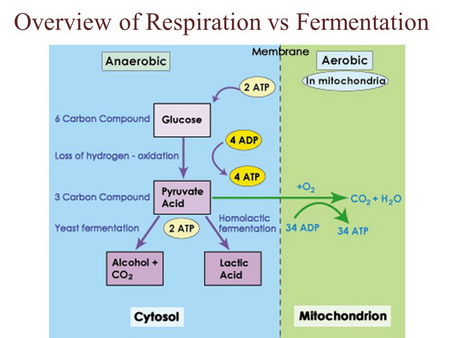Grapes hanging on the plant do not ferment but after being plucked from the plant can be fermented. Under what conditions do these grapes ferment? Is it a chemical or a physical?
2 Answers
They are chemical
Explanation:
When grapes are hanging on the plant, they are alive and so the cells do not allow bacterial growth.Also the cells have active metabolism
But, when they are plucked from the plant, all the cells of the grape either become dormant i.e seeds or die i.e parenchyma in the fleshy part of the fruit.
Hence, bacteria can easily attack and decompose the grape.
The grapes ferment when there is a limited supply of oxygen. Fermentation is a chemical process.
Explanation:
Aerobic oxidation
When grapes are still on the vine, they use photosynthesis to convert atmospheric
The extra glucose is stored in the from of starch.
When the plant needs energy, it converts the starch back to glucose.
Enzymes in the mitochondria then use oxygen to convert the glucose to carbon dioxide and water in a process called respiration or aerobic oxidation.
Fermentation
After a grape is plucked and stored, there is much less oxygen available, so the grape uses a different mechanism to provide energy.
Fermentation to alcohol is one of two pathways called anaerobic oxidation.

The reaction occurs in the cytosol of the plant.
It produces less energy, and the glucose is only partially oxidized to ethanol and carbon dioxide.
Winemakers add yeast to crushed grapes to hasten the fermentation process.
The yeast contain enzymes that efficiently convert starch (glucose) to ethanol.


